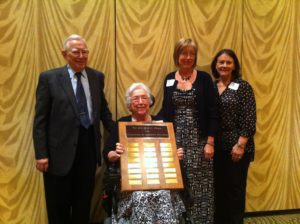Reading about how I discovered that I had become an advocate may help you explore possibilities for yourself.
I DIDN’T KNOW
I didn’t know I was an advocate. That I spoke up for someone. Was it because my father helped build churches for smaller communities? Was it because my mother rocked babies at the blood bank? Or was it because as a Methodist curriculum writer schooled in the Bible I had developed core values that made me want to speak up for and protect those who could not speak for themselves.
Or was it because my minister, Dr. Jackson, said, “I don’t know why you can’t start a committee on disabilities. Who do you want on the committee?” And he supported me every step of the way.
After he said that, looking back, I realized I had been advocating for years, just hadn’t put a label to it. I had run for president of my dorm in college, advocating for myself. My summer job in college found me advocating for the use of the Bible and curriculum in small churches in The Kansas Conference of the United Methodist Church, advocating for a case. I had been a prayerful and financial advocate for years
You may have been an advocate for years in little ways, and now you are called to use that skill in a critical way – big or small.
Along my way many people helped me advocate, and I discovered that no one advocates alone. There are always persons with a passion for your passion who will step up to help you advocate. You can count on it as a blessing, but it doesn’t happen automatically, you have to be receptive with open arms.
I DISCOVER THAT I REALLY AM AN ADVOCATE
Years later, I stood in the City Hall of Houston, Texas with an engraved glass trophy that said I am the Disabilities Advocate of the year 2010, (advocating for a person, case and cause).

The following proclamation was read at the award ceremony. I include it only to show the variety of ways one can advocate. You may see yourself in one of these ways to advocate.
“Naomi Mitchum’s advocacy began by writing books; she has published over 50 student books, teacher books, related resource kits, teacher enrichment articles, as well as many filmstrips and dramas. Her book, Harps in the Willows, was used in Salvation Army Counseling Centers after 9/11. Naomi has led her local church planning and creating awareness of the needs of people with disabilities. She organized a committee in 1995 that visited churches across Texas to help them become more accessible. She has taught over 40 classes at leadership schools and conferences covering accessibility and educational opportunities for people with disabilities. Naomi has worked with organizations to improve and coordinate transportation, select an appropriate voting machine, organized recreational and religious groups to meet special needs, participated in panel discussions and worked in the community with parents to promote disaster preparedness.”
In her response remarks to the City Council and guests, Mrs. Mitchum said, “The landmark American With Disabilities Act opened many doors, but it didn’t tell us how to walk through those doors, especially in the field of spirituality and church related and educational services. Every door is different with various disabilities and needs. I happened to be in the right places at the right times to urge or aid groups and individuals, so they could walk through the doors. In each instance, dedicated persons with heart stepped up to help.”
HERE IS WHERE WE ALL HAVE TO GET TO WORK
I am retired now, but have to wheel my chair back to the computer to advocate again for the field of mental health, which is, of course a disability. According to the World Health Organization, 460 million people around the world suffer from mental or neurological disorders. One in four persons has a mental health issue.
https://www.who.int/whr/2001/media_centre/press_release/en/
Isolation, lack of mental health care or delayed care, discrimination and neglect often prevent treatment. The World Health Organization urges countries to move from large institutions to smaller, more personal community treatments and advocacy.
Here is where every individual has a responsibility to consider becoming an advocate for mental health and the treatment of mental illness. It can be done on a small scale, or you can become as involved as your situation allows.
We can no longer ignore the mass killings where we had clues by the perpetrators that they needed counseling and services of mental health. We can no longer turn our heads away when we learn that elementary school children are afraid to get on their school bus or afraid to go to school for fear of being “shot up.” We MUST LEARN FIRST OBSERVE, THEN LISTEN AND THEN TO ADVOCATE, TO SPEAK UP.
YOU ARE THE PERSON WHO CAN STAND UP AND DO THE JOB, AND YOU CAN FIND OUT HOW ON THIS AND OTHER WEBSITES
Being an advocate is biblical. Yes, I know Micah was speaking to all of Israel , but he spoke to me also:
- What does the Lord require of you? To act justly and love mercy and walk humbly with your God. Micah 6:8 NIV
- And Jesus did not say we were all children of God except for those who can’t hear, see, walk or think or act like the rest of us. And he did say he loves each of us, even those with mental illness and even advocates.